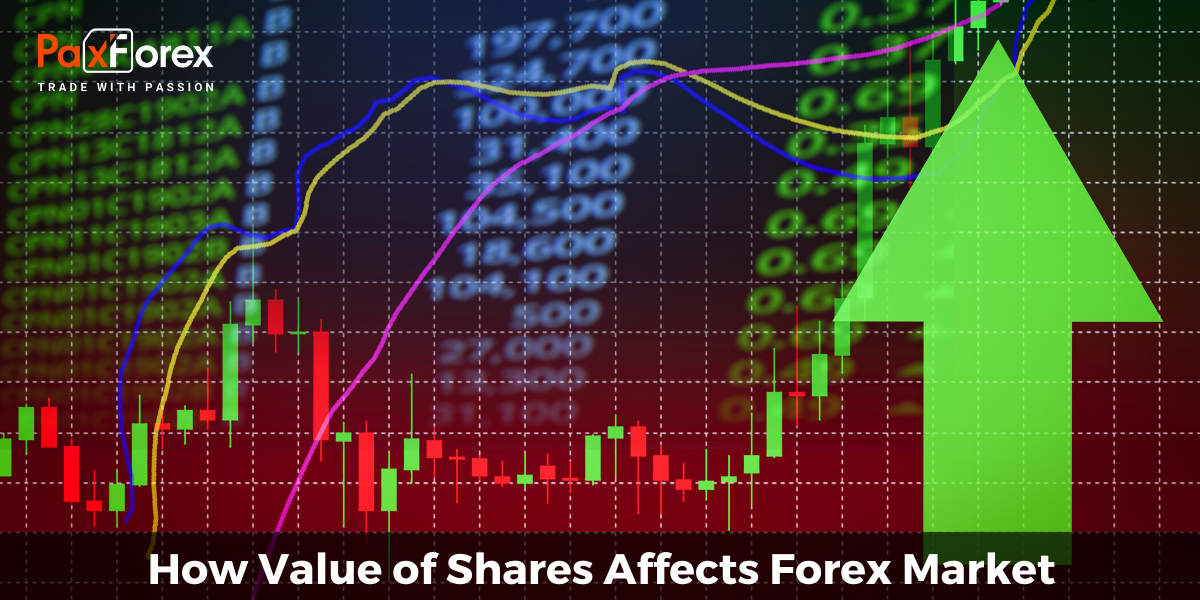The foreign exchange market, commonly known as Forex, is the global marketplace where various currencies are traded at real-time exchange rates. Driven by a myriad of factors, the dynamics of this dynamic and complex arena continually fluctuate. This article delves into the intricate tapestry of forces that shape the Forex market, providing a thorough understanding of the pivotal factors that influence its enigmatic movements.

Image: paxforex.org
Currencies have a fascinating history, serving as a medium of exchange, a store of value, and a unit of account for centuries. From the days of barter in ancient Mesopotamia to the advent of digital currencies in our contemporary era, the concept of currency has perpetually evolved, adapting to the evolving needs of society.
Understanding the Forex Market
A Global Marketplace
The Forex market is a decentralized, global platform operating 24 hours a day, five days a week, transcending geographical boundaries. The market operates through a network of financial institutions, commercial banks, and online platforms, facilitating a continuous exchange of currencies between a diverse range of market participants, including governments, multinational corporations, individuals, and hedge funds.
Currency Pairs
In the Forex market, currencies are traded in pairs. The most traded currency pair is the EUR/USD, representing the exchange rate between the Euro and the US Dollar. Other popular pairs include USD/JPY (US Dollar / Japanese Yen), GBP/USD (British Pound Sterling / US Dollar), and AUD/USD (Australian Dollar / US Dollar). The value of each currency pair is determined by several factors that can influence its short-term and long-term movements.

Image: howtotrade.com
Factors Influencing the Forex Market
The Forex market is influenced by a multitude of factors that can be categorized into two primary groups: fundamental factors and technical factors. Fundamental factors are macroeconomic and geopolitical events that can impact the overall economy and outlook of a currency’s value, while technical factors are based on supply and demand within the Forex market.
Fundamental Factors
- Economic Data: Economic news and data, such as GDP growth, inflation rates, employment figures, and interest rate decisions, have a significant impact on Forex prices by providing insights into the economic health, growth prospects, and monetary policies of different countries.
- Political Events: Political instability, government policies, elections, and changes in leadership can all influence the value of a currency by affecting economic growth, trade flows, investor confidence, and market stability.
- Natural Disasters: Major natural disasters, such as earthquakes, hurricanes, and floods, can impact economic activity and currency values, leading to short-term fluctuations in Forex prices.
- Geopolitical Events: International conflicts, wars, trade disputes, and diplomatic relations can affect currency values by creating uncertainty and increasing risk perception.
Technical Factors
- Supply and Demand: The Forex market is driven by the principle of supply and demand, and changes in the supply or demand for a currency can influence its value. Factors that affect supply and demand include economic news, political events, and market sentiment.
- Trend Analysis: Technical analysts use historical price data to identify trends and patterns in Forex markets. They believe that past price data can provide valuable insights into future market movements.
- Support and Resistance Levels: Support levels are areas where the price of a currency has difficulty falling below, while resistance levels are areas where the price of a currency has trouble rising above. These levels can be identified through technical analysis and can help market traders anticipate price movements.
Tips for Navigating the Forex Market
Navigating the complex Forex market requires a combination of knowledge, skill, and strategy. Here are a few tips for traders and investors:
- Understand Financial Markets: Before venturing into Forex trading, it is crucial to grasp the fundamentals of financial markets, including economic indicators, geopolitical events, and risk management principles.
- Start Small: Beginners should start by trading small amounts to minimize the potential for losses and gain experience in managing risk.
- Risk Management: Risk management is paramount in Forex trading. Traders and investors should employ strategies such as stop-loss orders, position sizing, and diversification to manage their risk.
- Use Technical Analysis: Technical analysis, while not a foolproof method, can be a valuable tool to identify potential trading opportunities and manage risk.
Frequently Asked Questions (FAQs) on Forex
Q: What is the most traded currency pair in Forex?
A: The most traded currency pair is EUR/USD, representing the exchange rate between the Euro and the US Dollar.
Q: What factors influence Forex prices?
A: Forex prices are influenced by a multitude of factors, including economic data, political events, geopolitical developments, natural disasters, supply and demand, trend analysis, and support and resistance levels.
Q: How can traders minimize risk in Forex trading?
A: Traders can minimize risk by employing strategies such as stop-loss orders, position sizing, diversification, and sound risk management practices.
Q: Is technical analysis a reliable trading tool?
A: Technical analysis, while providing potential insights into future market movements, is not a foolproof method and should be used in conjunction with other trading strategies and risk management techniques.
Q: What is a “pip” in Forex trading?
A: A “pip” is the smallest price movement that a currency pair can make, typically representing a hundredth of a percent (0.0001) or one basis point.
What Affects The Forex Market
Conclusion
The Forex market, a dynamic and intricate global marketplace, is influenced by a myriad of factors, both fundamental and technical, which collectively shape the value of various currencies. By understanding the factors that drive the Forex market and employing sound trading strategies, traders and investors can navigate this complex arena to capitalize on opportunities and mitigate risks. Whether you are a seasoned Forex trader or contemplating venturing into this fascinating world, we encourage you to delve deeper into the topic, engage in ongoing learning, and seek expert guidance to enhance your chances of success in this ever-evolving market.
Are you captivated by the Forex market’s enigmatic movements? Share your thoughts, questions, and insights in the comments section below, and let’s explore the world of currencies together.






